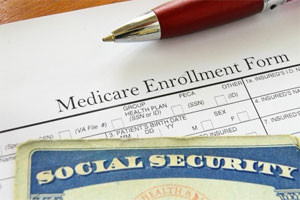 Social Security numbers have long been used as the main identification number for Medicare recipients, but a new system is in the works. A clause in the Medicare Access and CHIP Reauthorization Act of 2015 signed on April 16th calls for a $320 million revamp of the Medicare number identification system. This law will eliminate social security numbers from being printed, stamped, or embedded on Medicare cards. Social security numbers are the key to the “Pandora’s box” of identity theft, and government watchdog groups have been warning Medicare to stop printing social security numbers on cards for over a decade. Thieves have the potential to ruin a person’s financial credibility once they obtain a social security number since they are linked to almost every confidential document someone has. Reports have been made of hospital employees taking social security numbers directly from Medicare cards and applying for loans and credit cards.
Social Security numbers have long been used as the main identification number for Medicare recipients, but a new system is in the works. A clause in the Medicare Access and CHIP Reauthorization Act of 2015 signed on April 16th calls for a $320 million revamp of the Medicare number identification system. This law will eliminate social security numbers from being printed, stamped, or embedded on Medicare cards. Social security numbers are the key to the “Pandora’s box” of identity theft, and government watchdog groups have been warning Medicare to stop printing social security numbers on cards for over a decade. Thieves have the potential to ruin a person’s financial credibility once they obtain a social security number since they are linked to almost every confidential document someone has. Reports have been made of hospital employees taking social security numbers directly from Medicare cards and applying for loans and credit cards.
President Obama provided for a $50 million down payment to begin the process of switching to a new numerical identification system in his budget for 2016. Medicare has a four-year period to implement the new system and begin issuing new Medicare cards, and an additional four years to replace existing cards. While this transition will take time, it is important to be aware of the upcoming changes.
Be sure to verify your client’s social security numbers with them before they are placed on applications, and inform your clients of the upcoming change. Seniors have been encouraged by Medicare to carry their card with them at all times and when traveling, but hesitant to do so because of the social security number on their card. The new system will provide enhanced safety and security for your customers, and limit your exposure to distributing their personal information. Your clients will be comforted to know about this important new measure being applied to ensure both their physical and financial safety.
